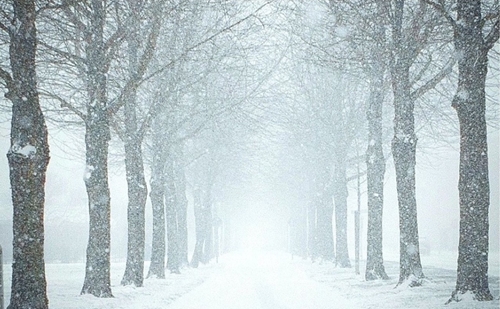Winter is here and that means the nasty weather is too. The Northeast has seen its fair share of historic storms over the years, and 2017 should be no different.
Small businesses should take the proper steps to protect themselves from preventable accidents that always seem to plague buildings, sidewalks and parking lots this time of year. Adhere to the following to minimize risk exposures and avoid claims:
1. Clear snow and ice
Winter weather can bring a myriad of challenges to the table, but perhaps none more frustrating than snow and ice. These conditions can affect operations in a number of ways. While property and casualty insurance is essential to protect the financial component of your company, the aim is to make sure no one gets hurt.
“Be sure to clear all walkable surfaces.”
Black ice can quickly form after a snowstorm and can make the business liable to an injury lawsuit should someone slip and fall. In this regard, don’t just clear the sidewalks around the building. Make sure the parking lot is safe too.
Be sure that one employee is assigned to the task of walking around the entire premises to ensure all ice is salted or removed. Be on the lookout for any areas of black ice so these specific areas are treated. Don’t leave this to chance—not only can someone suffer a serious injury, but a claim could be costly to your business.
Similarly, snow can be dangerous if left on flat roofs. If your building has one, and accumulates a ton of snow after a storm, consider paying for a snow removal service. While it could run you $300 to $500 in the short-term, the long-term cost could be exponentially worse should the roof cave in—it’s happened before.
2. Watch for frozen pipes
Some commercial buildings can have unused spaces. Should a space be empty, it would seem like a smart idea to cut off heat to that area and save some money, right? Unfortunately, this can cost a business more money than it’s worth if done incorrectly.
Be mindful this winter that if an area of the building isn’t heated for any length of time, depending on the temperature, the pipes in that section could easily freeze. Then, everyone would return to work only to be standing in a couple of inches of frigid water because the pipes burst.
Want to keep the heat off this winter? Hire a professional to drain the system and fill the pipe catches with antifreeze—this will ensure there isn’t any water build-up leftover. It may cost you a couple of hundred dollars now, but it’s well worth not having to buy all new furniture, electronics and carpeting.
If you’re planning to close the office for an extended period of time but don’t want to drain the pipes, consider setting the heat on a timer to run for a couple of hours each day. This will minimize any risk and hopefully ensure you won’t have to submit a claim.
 Water pipes can quickly freeze over and burst, causing serious flooding damage.
Water pipes can quickly freeze over and burst, causing serious flooding damage.3. Prevent fires
It seems like an odd tip to give—watch out for fires during winter? The fact that few people think about winter as being a high-risk period for fires, much like summer is, makes it that much more dangerous.
When it’s cold out, workers tend to bring in portable space heaters, heated blankets and anything that can help keep them warm. But, if forgotten about, these can quickly spark a flame.
This is a simple but important tip—be mindful of any flammable products plugged in. Have someone in the office in charge of checking all plugs before they leave every day to ensure a space heater, for instance, hasn’t been left turned on near something flammable, such as a rug, or is plugged into an extension cord. Also, be sure to use space heaters that shut off automatically when tipped over.
4. Foreseeing the future
OK—you can’t see the future. But you can do everything in your power to stop the preventable from happening. Insurance is more of a back-up option, and while property and casualty insurance is a nice—and necessary—option to have, some accidents could have more of a financial effect than you think, and may include increased premiums.
Be mindful of all the conditions that come with winter, the very same traits that perhaps you watch out for. It takes just a few dollars to buy a bag of salt for the sidewalks, but can cost thousands if you let black ice go untreated.
Interested in learning more about how you can protect your small business during the winter? Contact us today.
Share this Post

